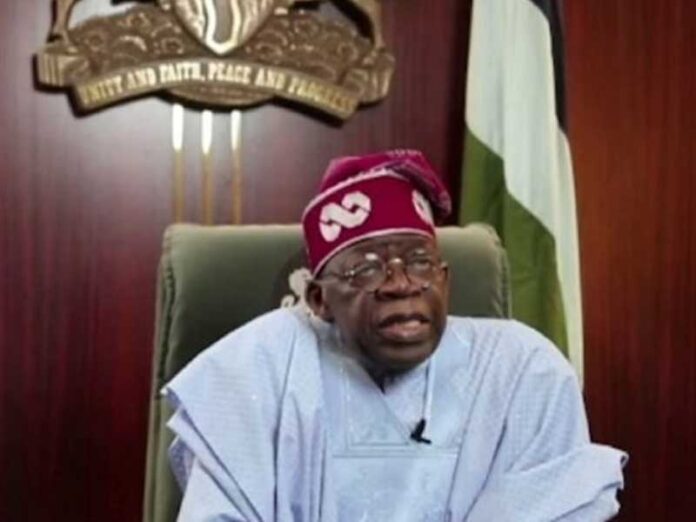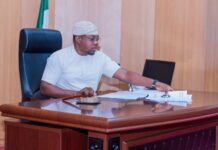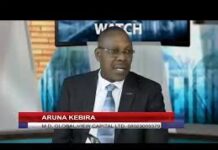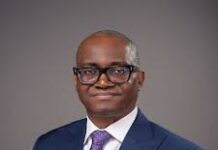CHIGOZIE AMADI
President Bola Tinubu has said his administration was prepared to collaborate with the National Assembly and the judiciary to ensure an all-inclusive government, while creating a legislative framework that promotes inclusiveness and mutual respect.
The President disclosed this yesterday, in Abuja at the House Open Week organised by the House of Representatives.
Tinubu who was represented by the Secretary to the Government of the Federation, Senator George Akume, noted that building a strong, solid and united country does not rest with only one arm of government, but a collaboration among all segments of society.
To this end, Tinubu called on the lawmakers to engage in robust oversight of the activities of government as a way of carrying out its check and balance function to ensure accountability, while ensuring that corrections are made where the need arises.
The President also called on the legislative arm to create platforms where citizens could air their concerns and actively participate in public hearings to enhance law-making.
He was of the opinion that citizen’s participation in the governance process was key to achieving true democracy where the well-being of the citizens would be given the desired priority.
Tinubu, explained that his administration would continue to respect the principle of checks and balances as enshrined in the Constitution.
“The chosen theme, ‘improving inclusion through citizens’ engagement,’ is apt, timely and vital because it underscores the importance of no doubt the need of the executive and legislative collaboration, but also the significance of effective oversight for greater accountability to all Nigerians that elected us into office in different capacities.
“Our gathering here today, I must say, is happening at a critical point of our nation’s journey, journey to greatness. The challenges before us demand collective efforts that obliterate political differences in all forms.”
Also, the Speaker of the House, Hon. Tajudeen Abbas, said an open parliament was the cornerstone of a thriving democracy, adding that by ensuring transparency, openness, and accessibility, trust between the legislature and the citizens could be built.
The Speaker stressed that the House Open Week provides a unique opportunity to engage directly with the public, fostering a culture of accountability and mutual respect.
According to him, “by opening our doors, we invite scrutiny and dialogue, which are essential for improving governance and strengthening democratic institutions.”
Abbas emphasised that the 10th House “has been committed to running an open House that actively incorporates citizens’ input in lawmaking and oversight processes.”
He noted that the Green Chamber had made concerted efforts to listen to the voices of their constituents and reflect their aspirations in legislative activities.
The Speaker maintained that through town hall meetings, public hearings, and stakeholder engagements, the House ensured that the legislative process remained inclusive and participatory.
He stressed that the approach not only enhances the quality of the laws, but also ensures that their decisions were rooted in the genuine needs and desires of the Nigerian people.
The Speaker noted that one of the most critical aspects of citizen engagement was accountability.
He added that the scorecard of the 10th House revealed significant developments in legislative activism.
In its first session, Abbas said the House introduced 1,351 bills, the highest number in any first session since 1999. He also said out of these, 89 bills were passed, reflecting the House’s commitment to legislative efficiency and effectiveness.
He revealed that the House also conducted numerous public hearings between November and December 2023, adding that as of June 13, 2024, 679 motions were moved on the floor of the 10th House.
Abbas stated: “Of these, 672 (99%) were being considered at various committees, while seven (1%) were negative. Among these motions, 43 (6.0%) were referred to ad-hoc committees and 629 (93%) to standing committees.
“On oversight visits and inspections, the House Committees visited 107 Ministries, Departments, Agencies (MDAs) and projects nationwide. This is despite most standing committees being inaugurated between November and December 2023, averaging 1-2 visits per committee.
“These visits aimed to ensure that government programs and administration were implemented effectively, efficiently, and in alignment with legislative intent.
“The House committees held a total of 502 meetings in the first session of the 10th House. Further analysis shows the frequency distribution of meetings conducted by 117 House committees.
“The data reveals that 91 committees (77.8%) conducted between 1 and 5 meetings, 21 committees (17.9%) held between 6 and 10 meetings, and 4 committees (3.4%) held more than 11 meetings each. However, one committee did not convene any meetings during this period.
“Public petitions remain a powerful mechanism for the House to address grievances from the public. In the year under review, out of the 240 public petitions currently under investigation, a total of 40 cases have been closed.
“In contrast, 10 cases have been laid before the House for further consideration. By this, the House has shown that it is sensitive and responsive to the people’s yearnings.”
The Speaker emphasised that the 10th House has also played a pivotal role in mediating conflicts and ensuring the smooth resolution of crises before they escalate, saying a notable example of their intervention is with the Nigerian Labour Congress (NLC), where the timely dialogue and negotiations led to the successful call-off of a nationwide strike, thereby averting further potential economic disruptions.
























